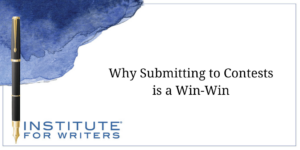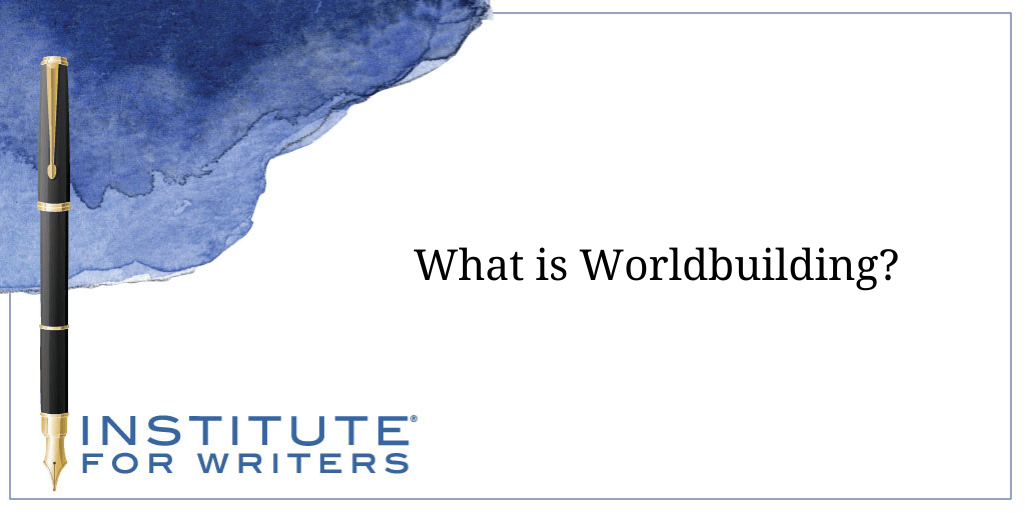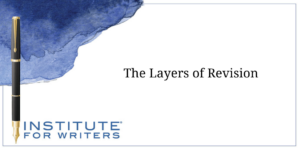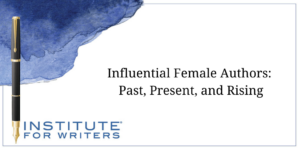
Why Submitting to Contests is a Win-Win
Should you enter a writing contest or not? If your writing rises to the top, you just might win a prize upwards of thousands of dollars if you’re lucky.

Most of us have read the classic Lord of the Rings, or most likely know what these epic fantasy novels by J. R. R. Tolkien are about. Similarly, plenty of us have read Harry Potter and the Philosopher’s Stone (the first Harry Potter book, also known as Harry Potter and the Sorcerer’s Stone) and perhaps were so hooked we were compelled to read more or even all of them. Are there many readers who have never explored at least one of Stephen King’s thrillers?
 J. R. R. Tolkien did not invent worldbuilding, but most experts agree that he took it to new heights when he imagined the fantastic realm of Middle-Earth, the main continent of Arda. This world was where The Lord of the Rings took place and everything about it was completely believable to its readers (and still is). We writers can only begin to imagine how Tolkien dreamed up this world and then carefully planned it out to such a degree that his books are considered classics
J. R. R. Tolkien did not invent worldbuilding, but most experts agree that he took it to new heights when he imagined the fantastic realm of Middle-Earth, the main continent of Arda. This world was where The Lord of the Rings took place and everything about it was completely believable to its readers (and still is). We writers can only begin to imagine how Tolkien dreamed up this world and then carefully planned it out to such a degree that his books are considered classics
Somewhat similarly, J. K. Rowling created an interesting and sensational world for Harry Potter and the characters within that series of stories—a world so fantastic that readers gobbled up her books as soon as each was published so they could jump back into the world and its characters.
Stephen King is known for a brand of horror that takes place within worlds he creates—these places bearing similarities to real life but with often startling differences. “Pennywise” the clown, for example, was a character in a world of horror that Mr. King successfully created. Readers found it frightening that a clown lived in the sewer (and showed up in other places) and caused some characters to come to a tragic and shocking end.
Every story we read will take place in a world that is similar to or quite different from our own. Stories that are set in our real world are usually a comfortable place for readers to imagine themselves, and the events of the story tend to be believable. Although the stories set in these real worlds are not easy to create, for the most part, the world where the characters live is predictable and normal.
 Writers who create a new or altered world for a fantasy or science fiction story must delve deeply into their imagination to create a place that is a plausible realm for their characters to live—even when readers’ imaginations are stretched.
Writers who create a new or altered world for a fantasy or science fiction story must delve deeply into their imagination to create a place that is a plausible realm for their characters to live—even when readers’ imaginations are stretched.
In both cases, one important goal of the writer is for their reading audience to be immersed in the setting and for the most part, enjoying the visit. So, a successful writer will strive to create a world (realistic or fantasy) that readers will believe in and care about.
Back to worldbuilding for realistic fiction: the setting for this believable place is often referred to as a primary world—one that is similar in some or all ways to our own world. This makes it somewhat easier for writers to garner interest in the story’s setting since readers can often connect to most or all of what they are reading about.
A story set at a typical outdoor music concert, for example, would be most believable if the writer first thought about every aspect of that venue: where it is (a big city, a small rural park, a field in upstate New York, or in a place no reader has ever heard of). The writer would ask themselves about the history of this place and think about what concertgoers would be observing and experiencing during their time there.
The writer would include sensory details (what do the concertgoers see, hear, smell, taste—and is it all familiar to the reader or is this a type of concert readers won’t be familiar with? Has it rained and do the characters walk through mud? Are the characters who are near the stage able to talk with each other? Is everyone behaving normally?) What problems are presented there (weather, space, surroundings, safety issues), and what funny incidents may have taken place there?
 Readers expect to discreetly learn that type of information as they read the story, and as long as they buy into the world the writer builds, the story will be satisfying. The primary world is not that much different (or often not different at all) from our own world.
Readers expect to discreetly learn that type of information as they read the story, and as long as they buy into the world the writer builds, the story will be satisfying. The primary world is not that much different (or often not different at all) from our own world.
A secondary world is a bit of a tougher place to sell to readers since it may not be set on Earth at all and will not resemble what readers are accustomed to. They need to believe in this world and want to learn more about the characters who are living and interacting there. Building this type of world takes not only a vivid imagination and lots of creativity but also lots of planning and even rule-breaking to be successful. Entire notebooks or computer documents will describe every aspect of this new world. In that way, the writer can refer back to what they decided as they made up this world, and stay consistent with their story, characters, and how they interact.
In the next blog post, we will discuss some ways to plan and build a world for your characters and ways to make readers believe in what you create. In the meantime, pay close attention to the world created within the story you are reading now. Think about why you like it (or don’t enjoy it) and the ways the author shows readers what the world is all about.
Susan Ludwig, MA has been an instructor with the Institute of Children’s Literature for almost twenty years. Susan’s writing credits include teacher resource guides, English language learner books, and classroom curriculum for elementary through high school students. A former magazine editor, she assesses students’ written essays as a scoring director for the ACT and SAT exam. When she is not writing or working, she is usually found playing with her grandsons or curled up with a good book.

Should you enter a writing contest or not? If your writing rises to the top, you just might win a prize upwards of thousands of dollars if you’re lucky.

To many, writing is revision, and most writers revise their manuscripts numerous times before they’ve shaped it into the best version that it can be.

We’re going to look at influential female authors of the past, those impacting the present, and whom the industry expects to make a big splash.
1000 N. West Street #1200, Wilmington, DE 19801
© 2024 Direct Learning Systems, Inc. All rights reserved.

1000 N. West Street #1200, Wilmington, DE 19801
© 2025 Direct Learning Systems, Inc. All rights reserved.

1000 N. West Street #1200, Wilmington, DE 19801
©2025 Direct Learning Systems, Inc. All rights reserved. Privacy Policy.
2 Comments